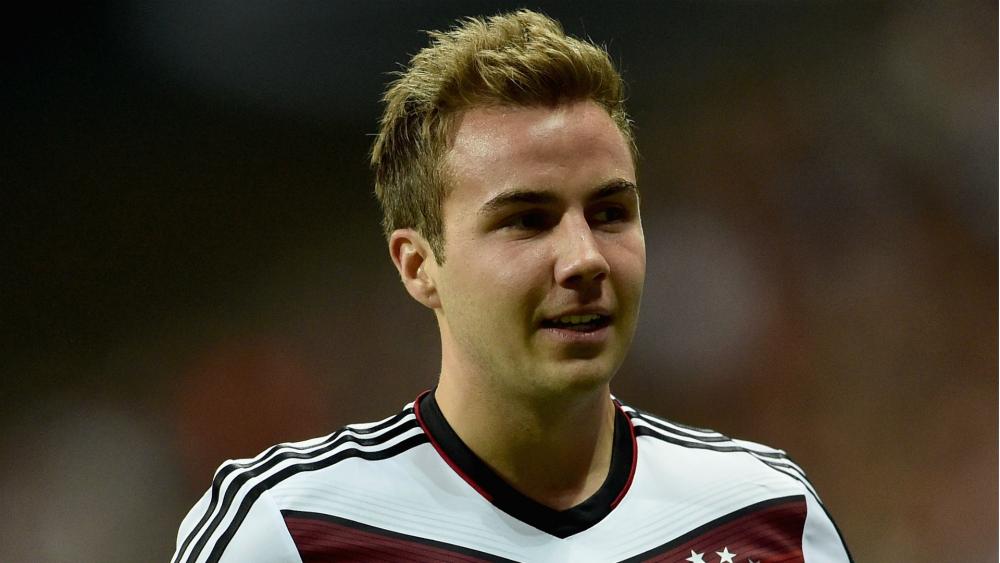The making of Alexis Sanchez, by those who helped him achieve greatness
With fire in his belly and thunder in his boots, Alexis Sanchez’s journey from remotest Chile to the bright lights of London has been remarkable. Martin Mazur asks his teachers, friends and coaches how a media-shy homeboy became the main man
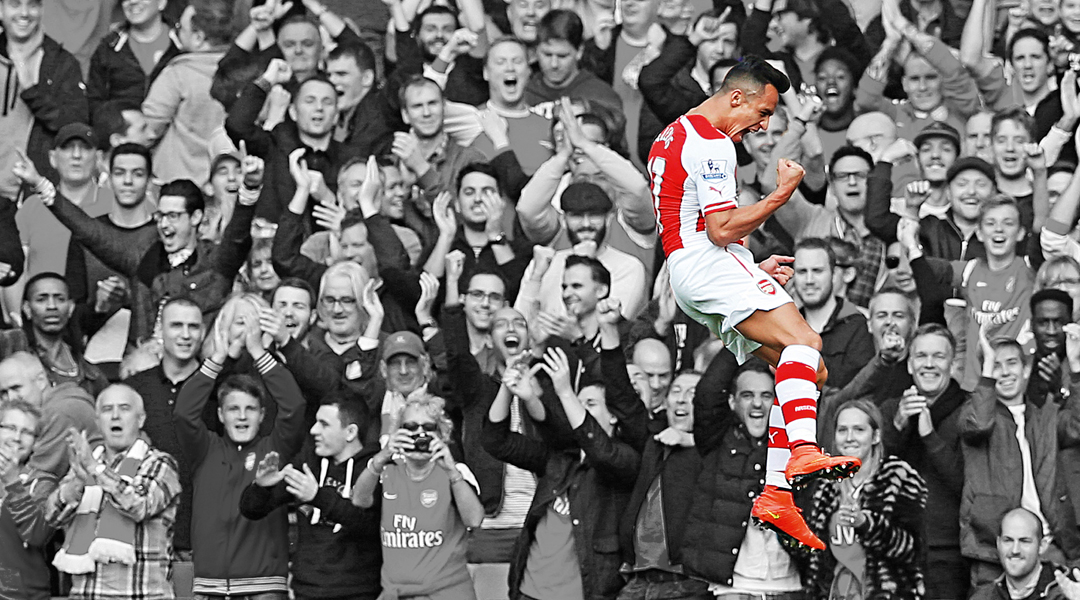
Most of the time, Alexis Sanchez is a superstar living in a carefully constructed cocoon. Shy and reserved, he doesn’t enjoy talking to the press, partly because his Spanish is difficult to understand even for other Chileans. Consequently, he rarely makes news away from the pitch.
For the past eight years, in Santiago, Buenos Aires, Udine, Barcelona and now London, he has followed a low-key routine: attend training sessions during the week, eat well at home, stay away from public events and nightlife, and then, when the whistle blows, play as if your life depends on it. The nickname Niño Maravilla (Wonder Kid) owes much to this Spartan schedule.
Date of birth 19 Dec 1988
Place of birth Tocopilla, Chile
Height 5ft 6.5in
Clubs:
2005–2006 Cobreloa (47 apps, 9 goals)
2006–2011 Udinese (112, 21)
2006–2007 Colo-Colo (loan: 32, 5)
2007–2008 River Plate (loan: 30, 4)
2011–2014 Barcelona (141, 47)
2014– Arsenal (52, 25)
International:
2006– Chile (80 caps, 26 goals)
Managers from different football schools – from Pep Guardiola, Claudio Borghi and Arsene Wenger to Diego Simeone, Pasquale Marino and Marcelo Bielsa – have fallen in love with his style and considered him fundamental to their tactical schemes. It’s easy to see why. Sanchez’s wrecking-ball style has no room for pretension: what you see is what you get.
And as Arsenal fans quickly discovered, what you get with the Chilean is a one-man forward line: a Swiss Army knife of an attacker, part winger, part midfielder, part forward; a multi-purpose marauder who plays with a raw intensity that is impossible to fake.

Most players say they hate losing. Sanchez plays like he hates losing. It’s why managers love him, why team-mates are inspired by him and why supporters are enthralled by him. And it’s why he already appears to be an Arsenal legend in the making.
Meet the real Alexis
There are just two places where the real Alexis Sanchez can be found. One is on the football pitch. The other is in his home city of Tocopilla. A thousand miles north of Santiago, stuck between the mountains, the desert and the sea, lies the tiny town where the Arsenal forward was born. “Tocopilla is like Vina del Mar, only smaller,” he once said on the TV show Nacidos para Ganar [Born To Win], comparing his gritty coastal home town to Chile’s ‘Garden City’.
Get FourFourTwo Newsletter
The best features, fun and footballing quizzes, straight to your inbox every week.
But apart from the sea, the two cities have nothing in common. As you enter Tocopilla’s undulating landscape, you see mountains with sharp cliffs, narrow and bumpy roads, ramshackle houses, pollution, poverty and dirt. Lots and lots of dirt. The entire region is one of the most arid places in the world. Little wonder the locals refer to it as ‘Devil’s Corner’.
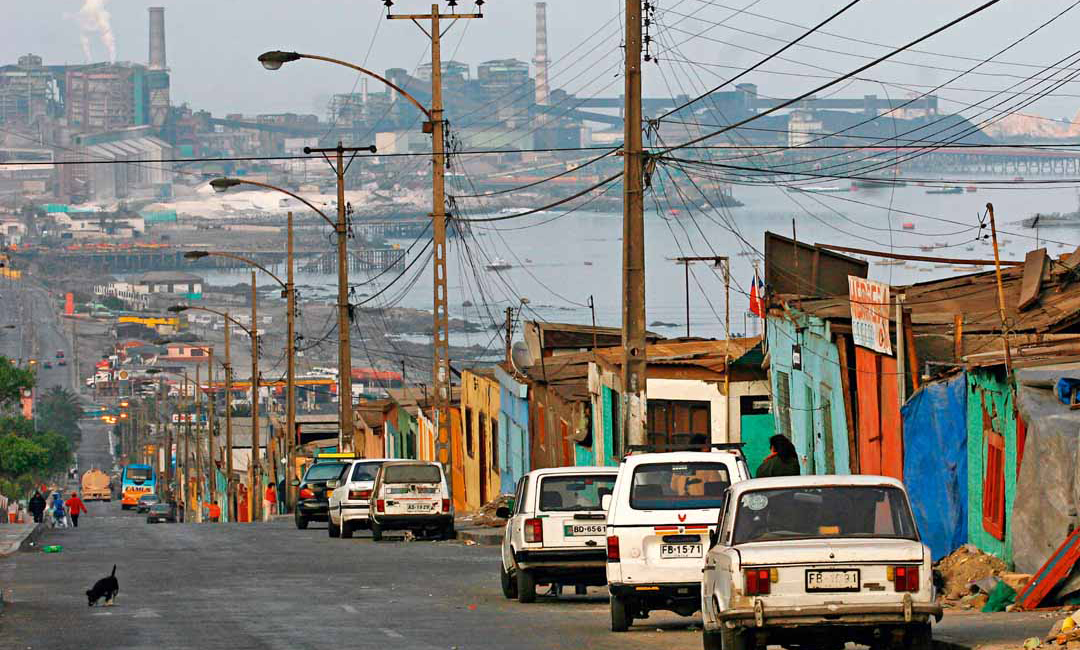
The city skyline now consists of a bay, a port and two big chimneys throwing out black smoke from the thermoelectrical plant. Worse, the area was struck by an earthquake in 2007 and is still recovering, with damage visible on every street corner. Most houses were hit, including those of Sanchez’s mother and aunt.
It’s here, away from the luxuries and fame, that the real Sanchez opens up to the public. Every time he comes back, he instantly goes out, talks to everyone, sits in the main bar, plays football with his friends and meets relatives and acquaintances.
It’s here, too, that he earned his first nickname, ‘Dilla’, a short version of ardilla (squirrel) – because he was quick, always played barefoot and it only took him seconds to climb onto the roofs of houses to recover lost balls during street games. (Some locals argue that the name Dilla was a contraction of pesadilla – meaning nightmare.) Sanchez was effervescent and active, so they all knew him and cared for him.
We were humble, hell yes, but I’d give away everything I have now to be back in those days again
“I was happy as a boy,” he admitted. “We were humble, hell yes, but I’d give away everything I have now to be back in those days again. I was the happiest kid in the world. That’s why I so enjoy coming back. There’s my family, my friends and my memories. And I like the sea. It’s the thing I like the most. If there’s the sea, then I’m happy.”
“It wasn’t easy to get money”
His father left Tocopilla shortly before he was born and Sanchez had to grow up fast, helping his mother Martina along with brother Humberto and sisters Marjorie and Tamara. His uncle Jose Delaigue, who died from cancer four years ago, became a paternal figure.
His mother would head to the nearest city to try to sell fresh fish, which she would clean one by one. Alexis took care of cars that were parked in the cemetery, washing them or just making sure nobody stole them.
“It wasn’t easy to get money,” he told Spanish newspaper El Pais in 2013. “I’d say to my mum: ‘Don’t worry, I’ll be a footballer and everything will work out – we’ll have money’, and she would laugh. I would promise gifts, cars and houses to my friends, too.”
He had started playing for a local side, Arauco, when he was six. “I remember it very well: he was an outstanding talent and already quicker than the rest of the boys,” his first manager, Alberto Toledo, who still has a picture of one of the first training sessions, tells FourFourTwo.
Rather than coming to train, he would stay playing football on the streets
“We would travel to play away in other cities of the region. Alexis was restless and always anxious. Not everybody was happy, because he played all the time but didn’t train a lot. Rather than coming to train, he would stay playing football on the streets. But he made a difference.
“I remember one particular game in the desert. He picked up the ball in our box, dribbled past the entire team and, looking exhausted, arrived in the opposition box, where the keeper made a harsh tackle.
Under the burning sun, without caring about the pain of the kick he’d just received, and almost incapable of speaking after his long run, he stared at the bench, imploring me to allow him to take the penalty kick. Pure Alexis Sanchez.”
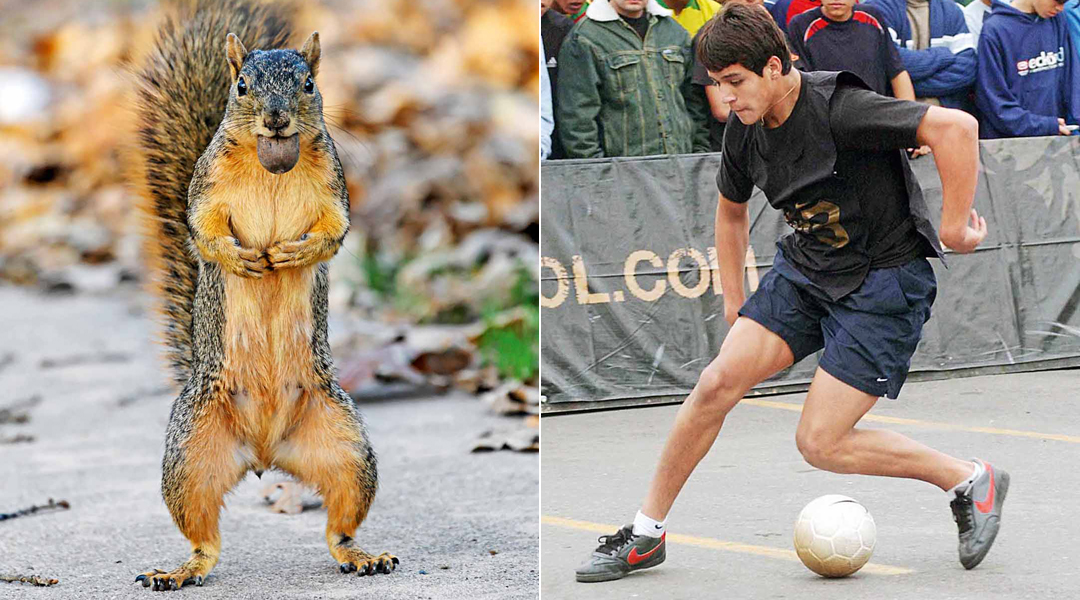
He once scored eight goals in a game against kids two years older than him. Thanks to special permission granted by the local FA, Sanchez competed in, and won, two tournaments at the same time. Still, nothing compared to those endless street games on the pitch near his home.
Playing barefoot gave me my style, running with little jumps, because I was dodging rocks
“Playing barefoot gave me my style, running with little jumps, because I was dodging rocks,” he once declared. But he didn’t understand positions or tactics just yet. “One day a manager told me to play as the right winger, and I had to ask him: ‘where’s that?’” Aware of Sanchez’s humility, the town’s Arauco-supporting mayor gave him his first pair of boots – Reeboks – when he was 15. “I was so excited that I wore them on the pavement, even though they had studs and were made for grass,” said Sanchez years later. Up to that point, his mother would borrow boots just for the games he played.
Moving away from home
For a town with just 25,000 people, Tocopilla has seen many professional footballers born and raised there over the last century – but only a few that managed to leave the region and progress on a national scale. One of them had been Ascanio Cortes, arguably the best defender Chile ever produced, who played for the River Plate side that featured the famous Maquina forward line.
Like most of his predecessors, Sanchez was so attached to his hometown that he refused to leave permanently when the first offer to move appeared, at 13, to play in Rancagua – 750 miles from home. But the youngster’s talent would open more doors and things were different when he drew the interest of Cobreloa, mainly as they were just 75 miles away in the Atacama desert.
You need to be self-centred, not get distracted, not fall for vices… and coming from poor families that’s not easy
“I’ve trained kids with skill and potential, sometimes as interesting as Alexis, but then they get lost and don’t make it,” says Toledo. “You need to be self-centred, not get distracted, not fall for vices – and coming from poor families that’s not easy, you know. Alexis was already convinced he would make it, and that he’d work hard to realise his dream." "I remember his debut at 16 for Cobreloa, a famous 5-4 against Deportes Temuco,” recalls Danilo Diaz, co-author – with his former colleague at the newspaper La Tercera, Nicolas Olea – of the Chilean’s first biography, Alexis: The Crack’s Journey (‘crack’ being what the Spanish call a team’s star).
“Nelson Acosta, who rarely bet on youngsters, sent this kid onto the pitch as they were losing and he changed the game with a couple of stunning actions. From that day I understood he was special, and I would attend his games when he visited Santiago.”
Attracting attention
The raw version of Sanchez offered bold acceleration and a seemingly impossible ability to stop on the spot. Not only that, he had the ability to speed up, stop and then accelerate again. Watching him was a spectacle within the game, without caring about results or team performances.
Experienced players would end up lying on the ground in training sessions against Sanchez, his reputation as the Wonder Kid already crossing borders. Sanchez was a diamond in need of polishing, but one with endless possibilities.
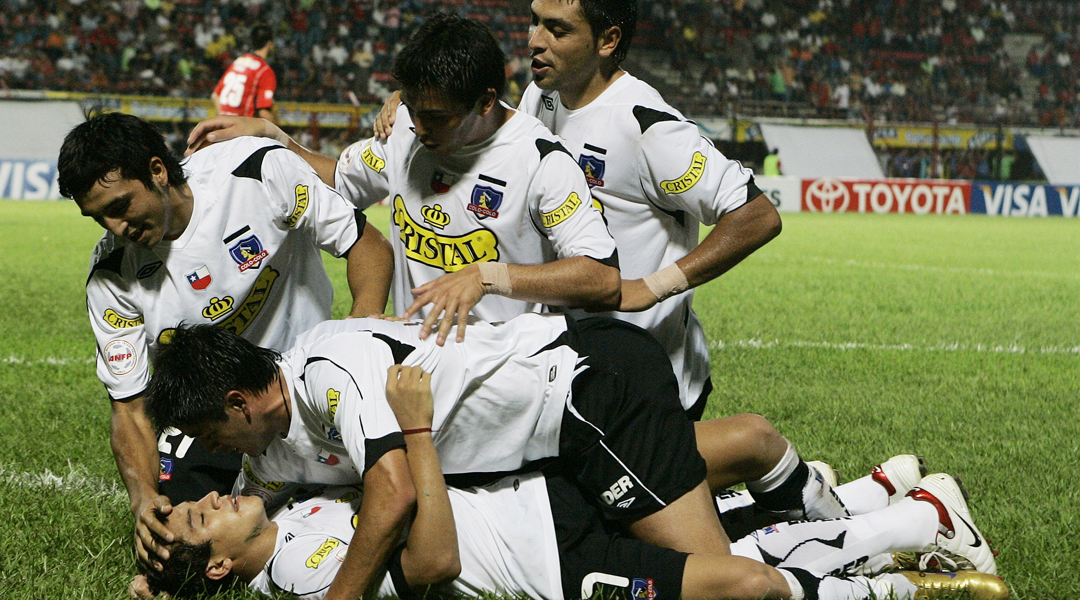
Erm... Borghi? Who are you? I don’t know any Borghis
That’s why Claudio Borghi phoned him personally in an attempt to convince him to join Colo-Colo. At the time, Borghi was the South American Coach of the Year, his style compared to Milan legend Arrigo Sacchi, and everybody on the continent was talking about him. But Sanchez wasn’t expecting his call, so when the man on the phone introduced himself as Claudio Borghi, Alexis replied: “Erm... Borghi? Who are you? I don’t know any Borghis.”
The celebrated coach had to explain to the 17-year-old who he was and how badly he wanted him.
And Sanchez, by then already bought by Udinese for £1.7m, was loaned to Colo-Colo for a year from June 2006 and Borghi said it felt as if a Christmas present had been delivered six months in advance.
Two local titles and a Copa Sudamericana final would quickly follow, complete with stunning performances from the Wonder Kid.
With the first real money he made, he built a new house for his mum and sisters. In Santiago, the super-shy Sanchez felt like Crocodile Dundee in New York. On his first day at Colo-Colo, the country’s biggest club, he was overwhelmed when he was offered some cookies.
Energy, fishing and the Boy Wonder
Exactly 100 years before Alexis was born, Tocopilla was building its first railway, a daring line laid by the Anglo-Chilean Nitrate & Railway Company, which gave life to this area, bringing water to its inhabitants. Few things have changed from those days. Mining is still a key asset and the train is still operating. “It’s not true that Tocopilla is just about me,” insisted Sanchez. “Tocopilla is famous for the energy and the fishing.”
However, his presence is everywhere, from posters to advertising boards, graffiti to photos. He is a living legend – a demi-god that hasn’t forgotten his roots. On the contrary, rather than spending his holidays in Bali or Dubai, he comes back to his hometown. Unsurprisingly, there’s a street in Tocopilla named after him.
You could tell he was making an effort to be in class because his career as a footballer was already prospering
The E10 is the school he attended, albeit perhaps more sporadically than his teachers would have liked: he would bunk off at any opportunity. “He was small and quick, and you could tell he was making an effort to be in class because his career as a footballer was already prospering,” recalls Olivia Gordon, his teacher from the time. “Sometimes he’d barely make it on time and then arrive without his backpack, so his mum would rush in to give him his books and folders.” His mother would also help in cleaning the school to earn some extra money, but Alexis tried to hide when he saw her, feeling embarrassed.
The school’s foyer now depicts pictures of its greatest student as an inspiration to the current pupils. Since he left the town, he regularly sends gifts and clothes to the school.
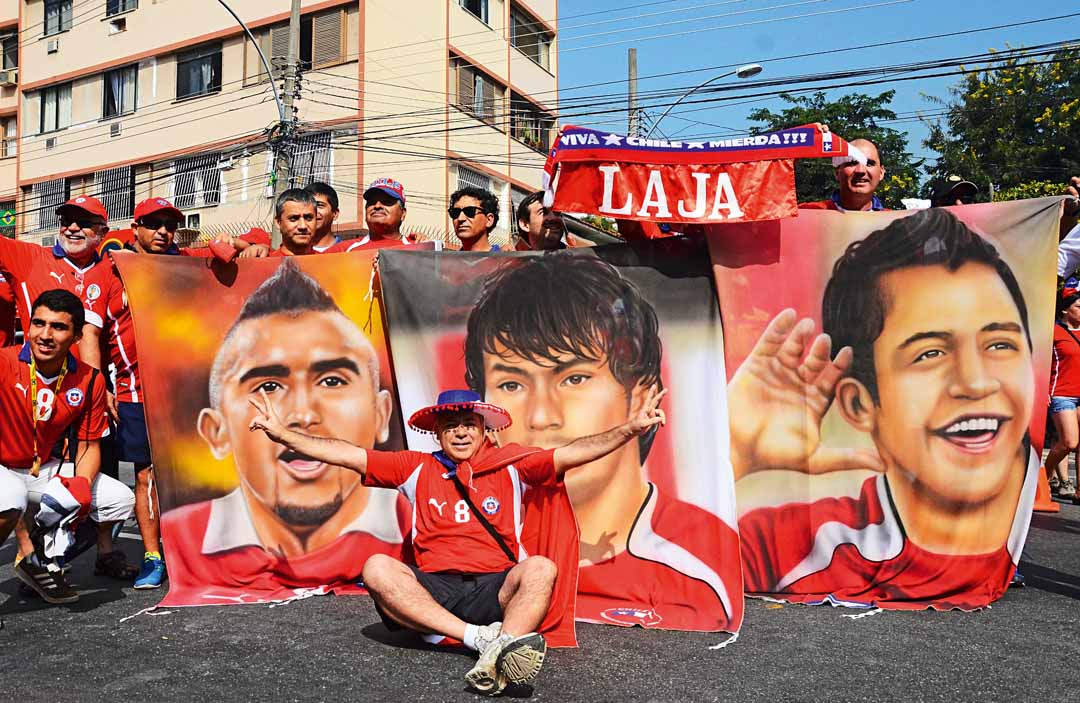
On top of that, every Christmas Sanchez likes to play the role of Santa in the town’s yuletide fair, showering the inhabitants of Tocopilla with presents, usually while standing on the back of a truck with his closest friends. In 2012, the Alexis caravan included several vans all bearing the legend ‘Happy Christmas wishes to you, Alexis 9’, with more than 400 cars full of fans that accompanied him from Antofagasta (120 miles away) or even further.
In the visit for Christmas 2013, he was also present at the inauguration of five football pitches which he had financed following a meeting with the mayor. On those pitches, a talent programme to offer opportunities to kids was born. Alexis handed them the first trophy.
At Christmas 2014, the visit was impossible due to the Premier League’s fixture list, but Tocopilla residents made the best they could of it, according to mayor Fernando San Roman: “Our citizens were used to this tradition Alexis had set of visiting the streets and giving away presents. He was very missed this time, but we tried to set up activities so the Christmas spirit that Alexis represented didn’t get lost now that he had to keep playing in England.”
But in a different way, Sanchez’s figure still loomed larger than Father Christmas. Every New Year, Tocopilla’s tradition is to build giant dolls of popular characters, from the alien in ’80s Arnie vehicle Predator to the cast of The Simpsons, and then set them on fire for luck. Alexis Sanchez is, of course, one of the most sought-after models to burn.
Making history and making friends
There are hundreds of Arsenal jerseys visible on the streets of Santiago, thanks to the Alexis effect
The Arsenal transfer had a huge impact not just on his hometown but the entire country. “Now there are hundreds of Arsenal jerseys visible on the streets of Santiago, thanks to the Alexis effect,” says Sanchez biographer Diaz.
“Since he is not very open to media, sometimes people don’t realise how big he is abroad, and we only discover it by the coverage of foreign press or what players and managers say about him. It’s a similar case to Marcelo Salas.”
Diaz’s book on Sanchez has been an instant hit, selling more than 10 times the average figures for a sports book, and being revised for the third time with an added chapter on Arsenal. A survey conducted by marketing company Havas Sports & Entertainment named Sanchez as the most influential sportsperson in Chile, with nearly 66% of the votes going to him.
What’s more, it seems only a matter of time until he becomes the most capped player in the country’s history (he’s third, not far behind record-holding team-mate Claudio Bravo, more than five years his senior) and top goalscorer (fourth with 26 goals, 11 behind Salas).
He was the youngest player ever to wear the red jersey, having made his international debut when he was 17 years and five months old. By 2018, he could also be the first Chilean to play in three consecutive World Cups, having made a major contribution in qualification for 2010 and 2014.
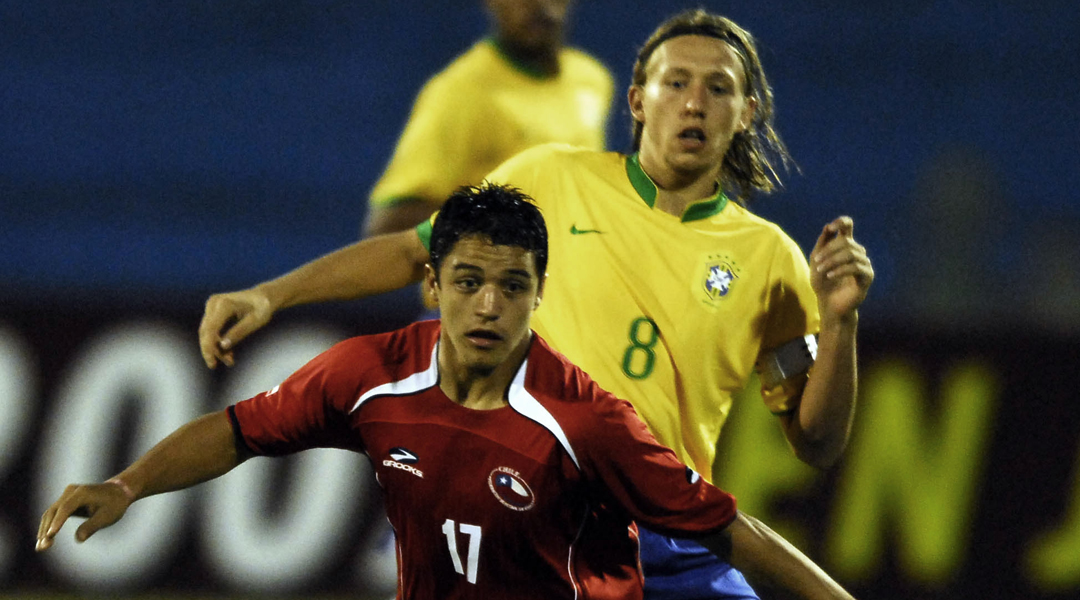
The [Chile] kit man told me I was meant to be in the other dressing room, with the youth team. I couldn’t have been more embarrassed
“The first time they called me up,” he said, “I entered the dressing room with confidence, but in silence. I realised everybody was looking at me. All of them were giving me a look that said: ‘Who’s this?’
“Soon I noticed I was walking through the stars of the national team: Rodrigo Perez, Nelson Tapia. Then the kit man approached me and told me I was meant to be in the other dressing room, with the youth team. I couldn’t have been more embarrassed.”
Timid as he might appear, the dressing room and training sessions now reveal a different Sanchez, a closer version to the one he is in Tocopilla. He cracks jokes all the time and knows how to be the centre of attention. In terms of personality, he is bubbly and charismatic, like Sergio Aguero.
Like those born to lead, Sanchez is able to unite those around him without seeming to try, even in the sometimes political Barcelona dressing room. As Sanchez said in 2011, “Victor Valdes always tells me, ‘Oh Chilean, I don’t understand a thing you’re saying!’, and we all laugh. Messi’s the only one who actually understands my jokes.”
He integrated himself among Barcelona’s heavyweights quickly and easily. “Oh yes, Alexis is a funny boy – we still can’t understand much of what he says, but he’s funny,” admitted Gerard Pique two years later.
Learning and maturing
“The secret of Sanchez is that he was embraced by a generation of veterans when he started at Cobreloa, such as goalkeeper Nelson Tapia, and they gave him good advice so he never actually cared about stardom and always kept his feet on the ground,” says Diaz.
Tapia famously gave the youngster a pair of brand new Nike boots because his were broken. They were bigger than his size, but Alexis didn’t dare complain. “It was a dream to have those shoes!” he admitted in an HBO documentary.
When Alexis enters the pitch, he transforms into a kid again, and his mission is to play with the ball with that pride of street football
In every dressing room he entered, the senior players noticed he was special and needed to be guided properly, because his potential was huge. When Udinese loaned their new signing to Colo-Colo, the 17-year-old quickly became Humberto Suazo’s room-mate and protégé.
Special relationships with attacking partners were also helpful with the national team, where he played alongside childhood idol Salas, and at Simeone’s River Plate, where he shared the pitch with experienced pair Sebastian Abreu and Ariel Ortega.
“What I like about Alexis is that when he enters the pitch, he transforms into a kid again, and his mission is to play with the ball with that pride of street football,” said Radamel Falcao in 2008, while the Chilean was on another season’s loan, this time at Argentine giants River Plate.
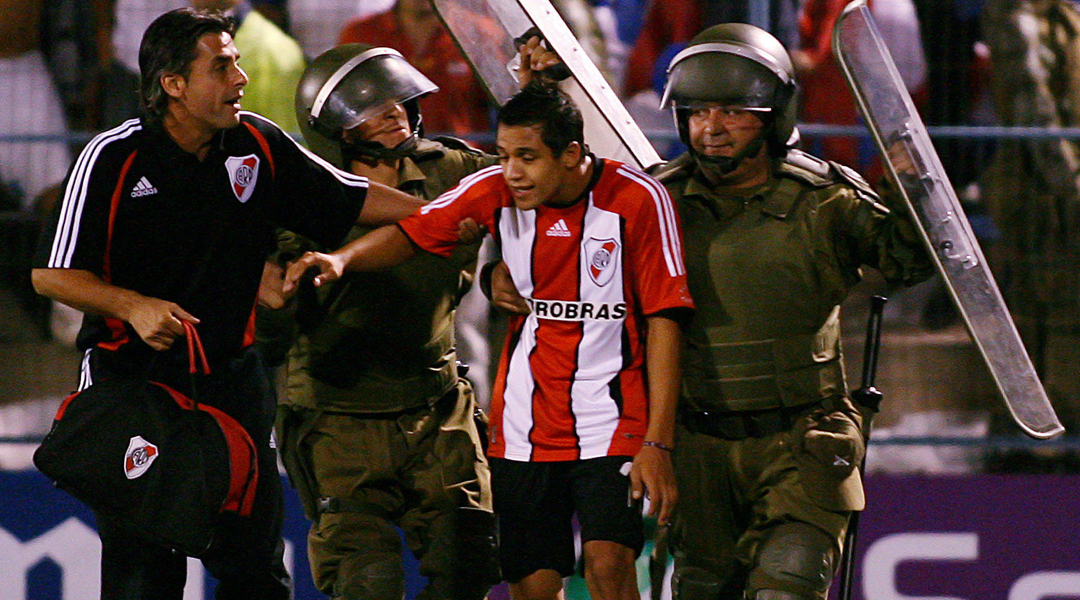
In those first years as a professional, Sanchez was so quick he sometimes felt he had to wait for his team-mates. In Austria, playing one of his first games for Chile under Marcelo Bielsa, Salas gave him a vital piece of advice: “If you arrive at the goal-line, don’t wait – just cross the ball. If we’re not there, it’s our responsibility, but you’ve already given us the advantage.”
Although Sanchez had sometimes been criticised for being too selfish, his maturing process developed rapidly in the national team under Marcelo Bielsa, who found a man willing to work hard and capable of training at the same intensity as he played.
“From time to time,” said Sanchez, “people ask me if I analyse the defenders or the teams I will face; if I think of some plays in advance. The answer is no, because good things are meant to come out in the spur of the moment. That’s the way it is – they are just born.”
But when it came to training, there was nothing that wasn’t strictly detailed and carried out with high levels of discipline. “His story is one of a boy who worked and trained really hard since he was 15,” says Nicolas Olea, co-author of Alexis: The Crack’s Journey. “There wasn’t any luck – just hard work.” Chile once had to open one of their training grounds on Sanchez’s request: he wanted to train, alone, on the national team’s day off.
Bielsa left a footprint on my game. I changed. With him, I began to understand the game
“Bielsa left a footprint on my game, because I changed with him,” said Sanchez. “Before, it was just about getting the ball, keeping my head down and running forward. With him, I began to understand the game. The World Cup campaign [in 2010] made a huge impact.”
The Argentine manager plays down his role. “I don’t feel responsible for his growth because he earned it – it’s me who feels gratitude to him,” said ‘El Loco’.
“He can perform on the right, the left and in the centre, can dribble and score goals. He can play well in every side, in every league, because his condition is unusual – almost unique. His human qualities are also worth mentioning. He’s a lovable guy.”
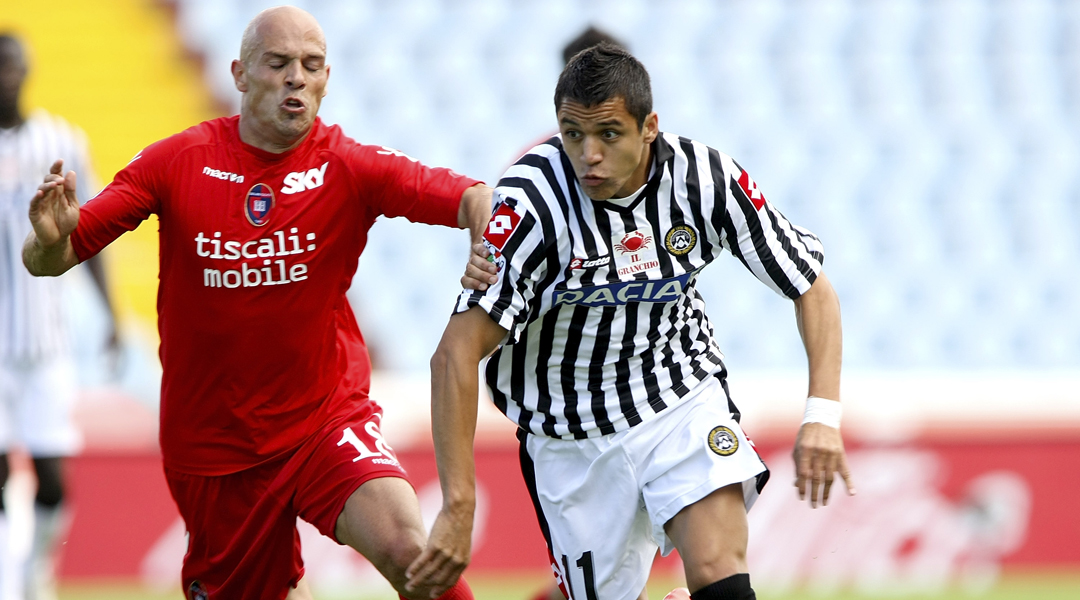
To Europe
After moving to Udinese in July 2008, Alexis was considered solare – a joyful person who carries the sun in his attitude. But it took some time for his team-mates to understand how to take advantage of his skills.
Antonio Di Natale was a key figure in his Italianisation, a maturing process that took him two seasons. Sanchez acknowledged this, surprising journalists at a press conference by breaking into Italian: “As you say here, piano piano si arriva lontano” – ‘Slowly, you can go far’.
While Sanchez enjoyed playing in a gung-ho 3-4-3 for the national team under Bielsa, he also learned how to fit into Udinese’s 3-5-2 that sat back – and was devastating on the counter-attack in Serie A.
I received a high tackle from behind. I turned around and I saw Pirlo and Gattuso. What do you think: who had kicked me like that?
“In Spain you see one-on-ones, an attacker against a defender, with lots of spaces,” he said in 2010. “In Italy, as it was in Argentina, it’s one against 11 – they retreat quickly. And it’s harsh. The other day I received a high tackle from behind. I turned around and I saw [Andrea] Pirlo and [Gennaro] Gattuso. What do you think: who had kicked me like that?” But then he always was a magnet for scything tackles. “My problem is that sometimes it looks as if I won’t reach the ball, but I do, and when an opposition player has already made the effort to clear it, he gets me. That happened a lot in Argentina. But nothing compared to playing against the older kids in my town."
Against Palermo in February 2011, he scored four goals and became the most sought-after player in Italy. Juventus wanted him badly, but there was tough competition from abroad.
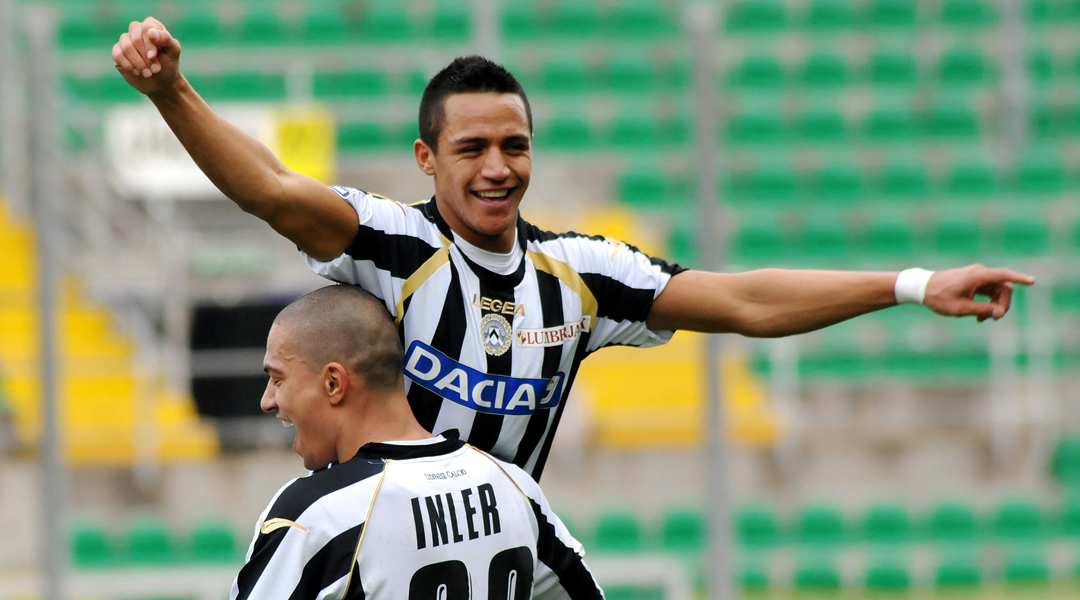
When Pep Guardiola took him to Barcelona that summer, Sanchez discovered that everything he knew about football, or thought he knew, had to be learned again. “It’s like playing another sport,” he agreed with Javier Mascherano, another who was moved by the need for improvement to fit in at the Nou Camp.
Alexis has stolen our hearts. He has the excitement of a kid and his courage is remarkable
“Alexis has stolen my heart – our hearts,” said Guardiola three years ago, after Barcelona beat Real Madrid at the Bernabeu. “He has arrived here with the excitement of a kid and hasn’t let that go. His courage is remarkable.
“He came to offer something that we didn’t have. He can play in all three positions in attack, he has lots of energy, defensive intensity, one-on-ones, dribbles, with a vertical sense of the game, and he’s also a great kid,” he declared.
The problem was that in order to fulfil his dream of playing for the world’s best team, Sanchez accepted a secondary role during what was the best football period of his career so far, especially after Pep's exit.
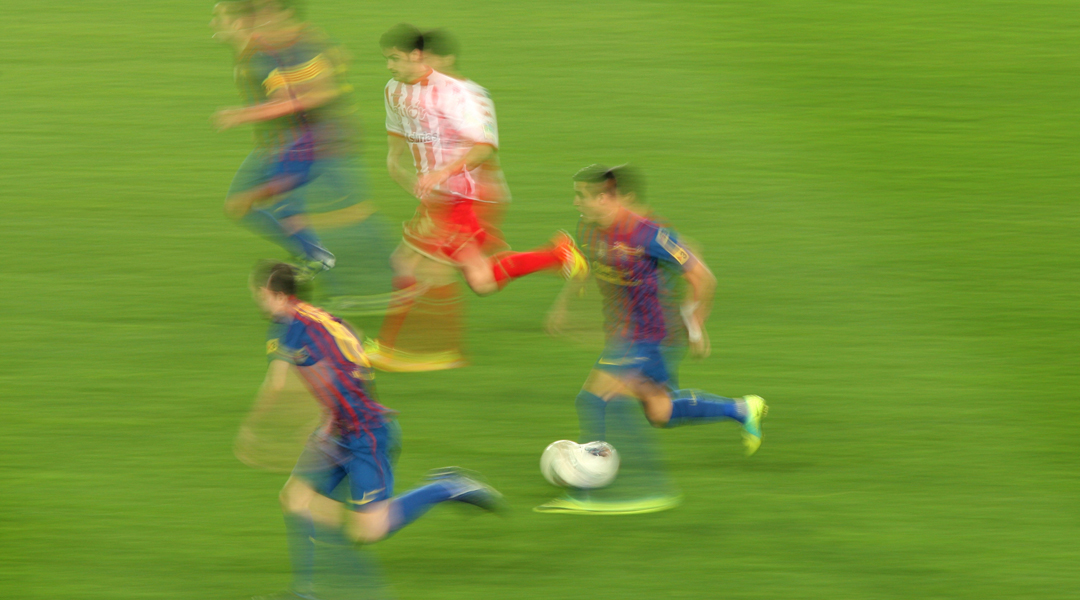
“Alexis needs freedom, and in Barcelona he had to cover a certain area that was not best for his personal game because it made him lose participation,” explains Chile manager Jose Sampaoli. “He had to be part of a philosophy that wasn’t convenient for him, and now he appears to be freed again.”
Guardiola and Tito Vilanova seemed to know how to use him; Jordi Roura and Tata Martino, less so. In Sanchez’s last season in Spain, even if he’d played better and scored more than Neymar, he ended up on the bench. It was the right time to leave.
“Now, at Arsenal, we’re seeing the wild Sanchez that we discovered in Chile, running here and there, but with another concept of the game,” says Diaz. “The Premier League seems perfect for him.”
For someone so driven, it’s hardly surprising that Sanchez already has plans for his retirement. “I’d like to become an actor,” he said three years ago. “It’s why I try to make an effort in all the ads I shoot. The problem is that I don’t speak English so I probably can’t make it in Hollywood!
“But it’d be a dream to appear in the movies, either as a detective – you know, a smart chap, well-dressed, pistol, cool attitude – or as one of those lads who works at NASA and knows about everything.”
But first, Sanchez is set to star in the story of his own remarkable life: the all-action hero who takes on the bad guys single-handedly. Whether it has a happy ending remains to be seen. But considering where he’s come from, you wouldn’t bet against it.
More features like this every day at FFT.com
This feature originally appeared in the March 2015 issue of FourFourTwo. Subscribe!
